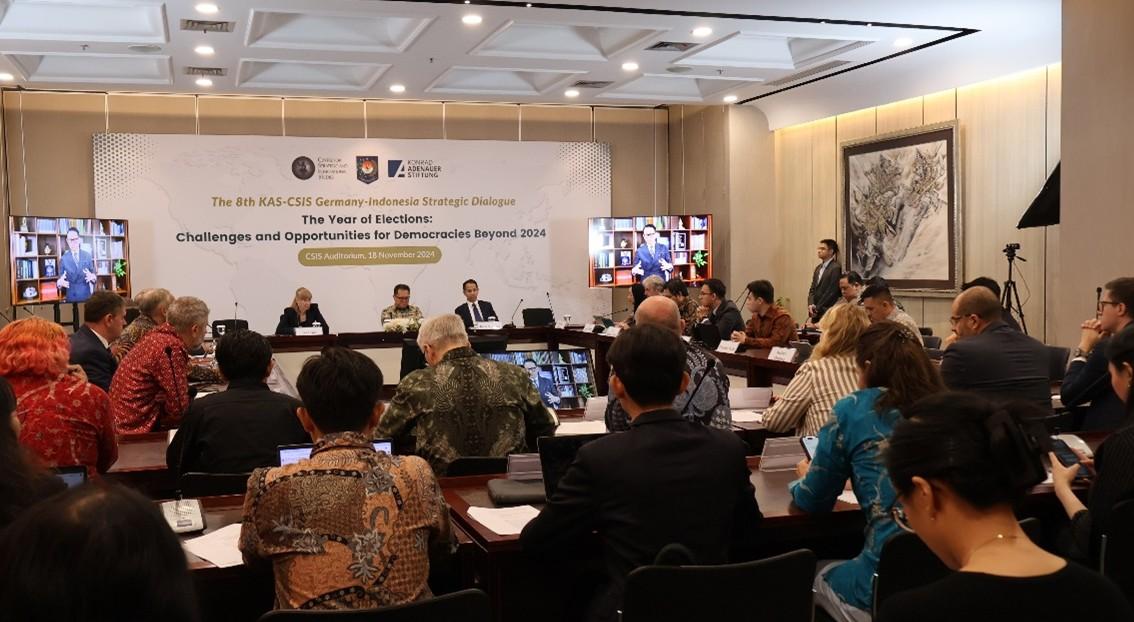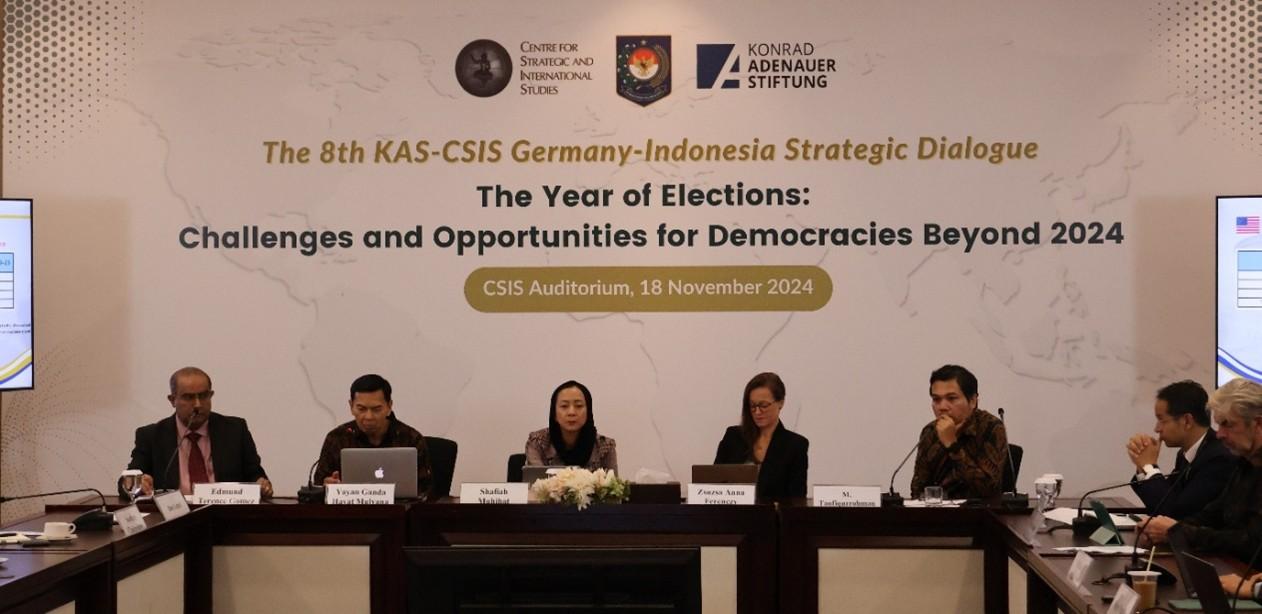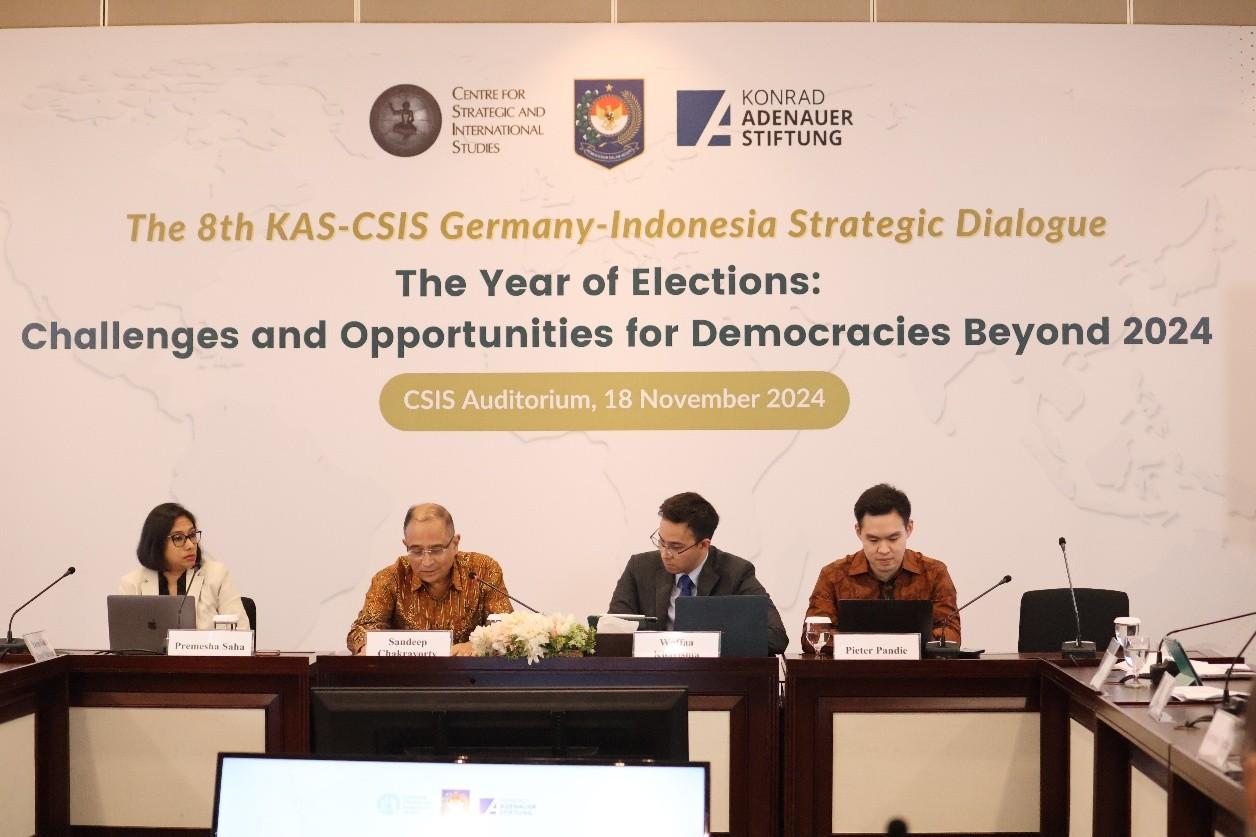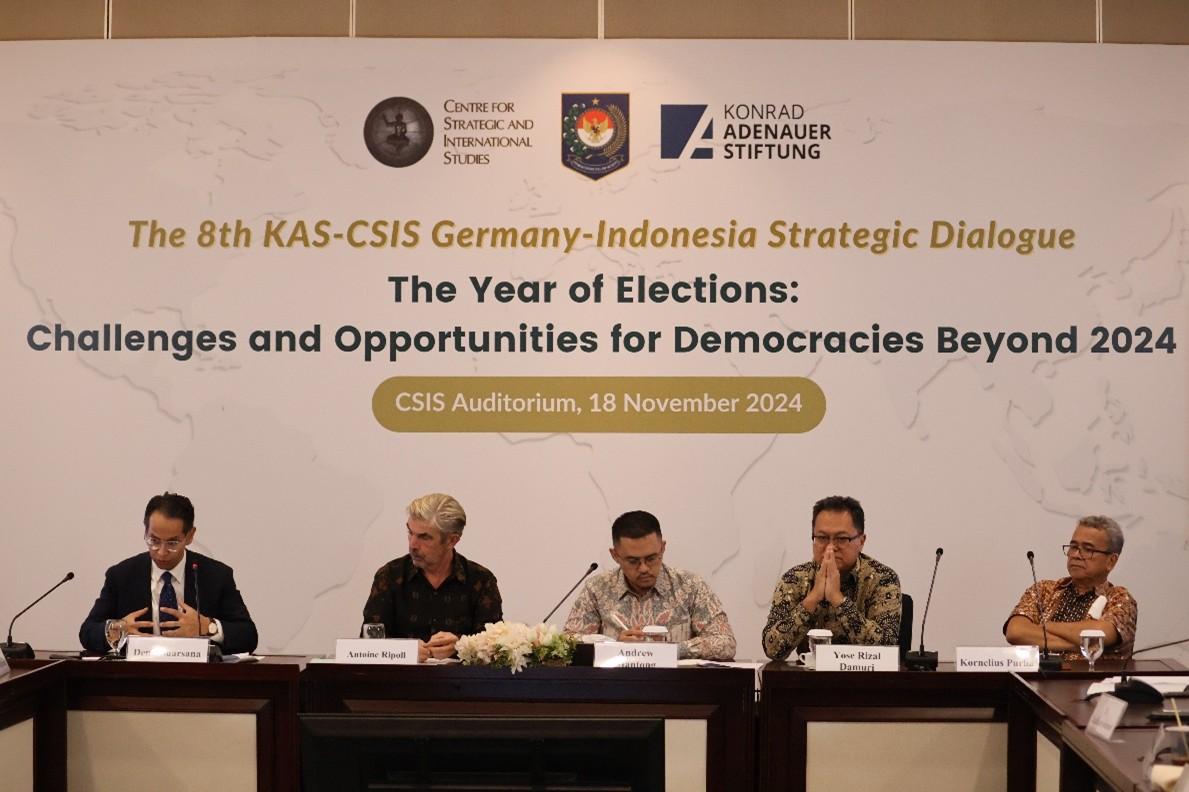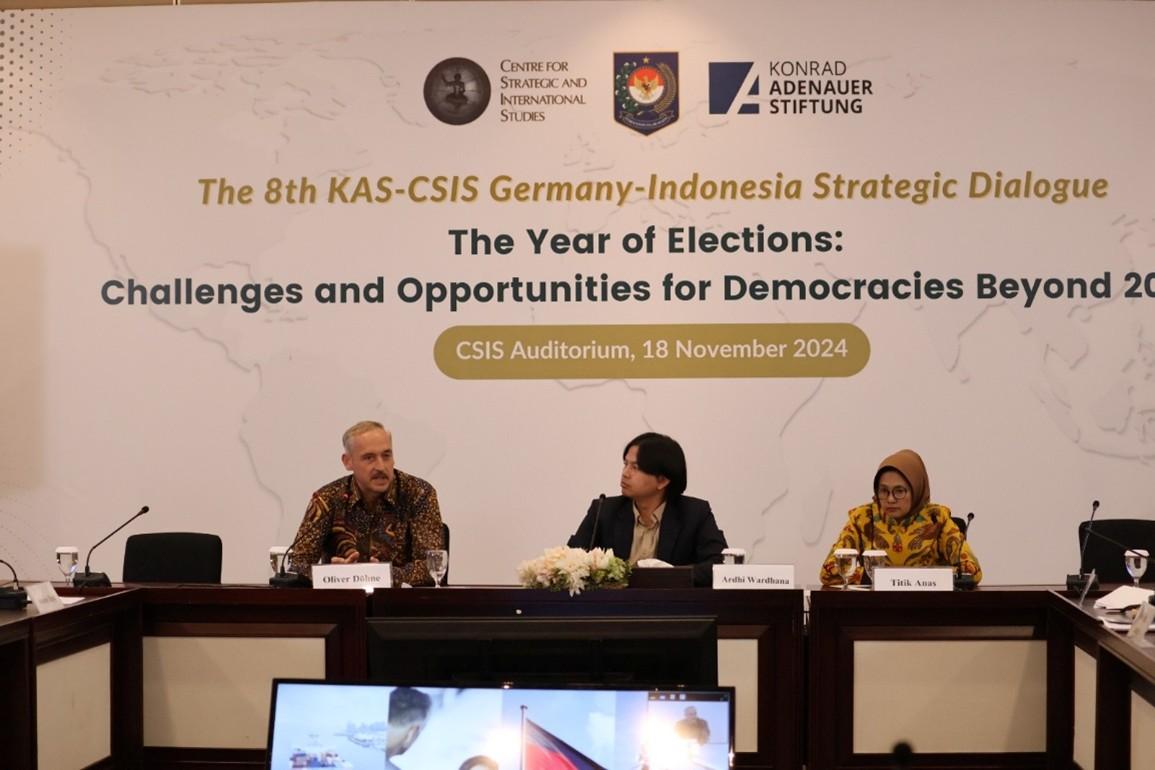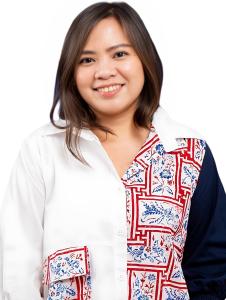The aim of the dialogue was to analyze current challenges such as rising populism, protectionism, democratic setbacks, and geopolitical tensions. At the same time, the opportunities that could arise for Indonesia, the ASEAN countries and the EU after the elections were highlighted.
The event was aimed at invited representatives from politics, academia, think tanks and diplomatic representatives from ASEAN and EU countries based in Jakarta.
After the welcome address by Dr. Denis Suarsana, Director of the Konrad Adenauer Foundation (KAS) for Indonesia and Timor-Leste, and Dr. Yose Rizal Damuri, Director of the Centre for Strategic and International Studies (CSIS) Indonesia, the participants were introduced to the topic by high-ranking speakers. H.E. Arif Havas Oegroseno, Deputy Foreign Minister of Indonesia, and H.E. Ina Lepel, German Ambassador to Indonesia, delivered their keynotes on the challenges and prospects for democracies beyond 2024.
The event was divided into four exciting panels:
- “Impact of the US Election on the Indo-Pacific”: this panel analyzed the potential impact of the US election on Indonesia and ASEAN, particularly in terms of trade, investment, and security.
- “India and Indonesia after the Elections - The Rise of New Global Powers in Asia?”: The discussion looked at the increasing importance of India and Indonesia on the global stage and how the 2024 elections could affect their roles in the region and globally.
- “The 2024 Election Year as A New Beginning for the EU-Indonesia Relationship”: The focus was on relations between the EU and Indonesia, particularly in the areas of trade, climate protection and political cooperation against the backdrop of increasing tensions and populist tendencies.
- “Protectionism vs Free Trade: Where Will the Journey Take Us after the Super Election Year 2024?”: The growing protectionist tendencies and their impact on the global trade order were discussed.
The discussions showed that the political changes in the 2024 super election year have far-reaching implications for democracy, international cooperation, and economic development. Speakers emphasized the need for dialogue and cooperation to tackle global challenges such as populist politics and geopolitical conflicts. The event emphasized the importance of elections as a driving force for change and the need for strong democratic institutions to meet future challenges.About this series
The Konrad-Adenauer-Stiftung, its educational institutions, centres and foreign offices, offer several thousand events on various subjects each year. We provide up to date and exclusive reports on selected conferences, events and symposia at www.kas.de. In addition to a summary of the contents, you can also find additional material such as pictures, speeches, videos or audio clips.



